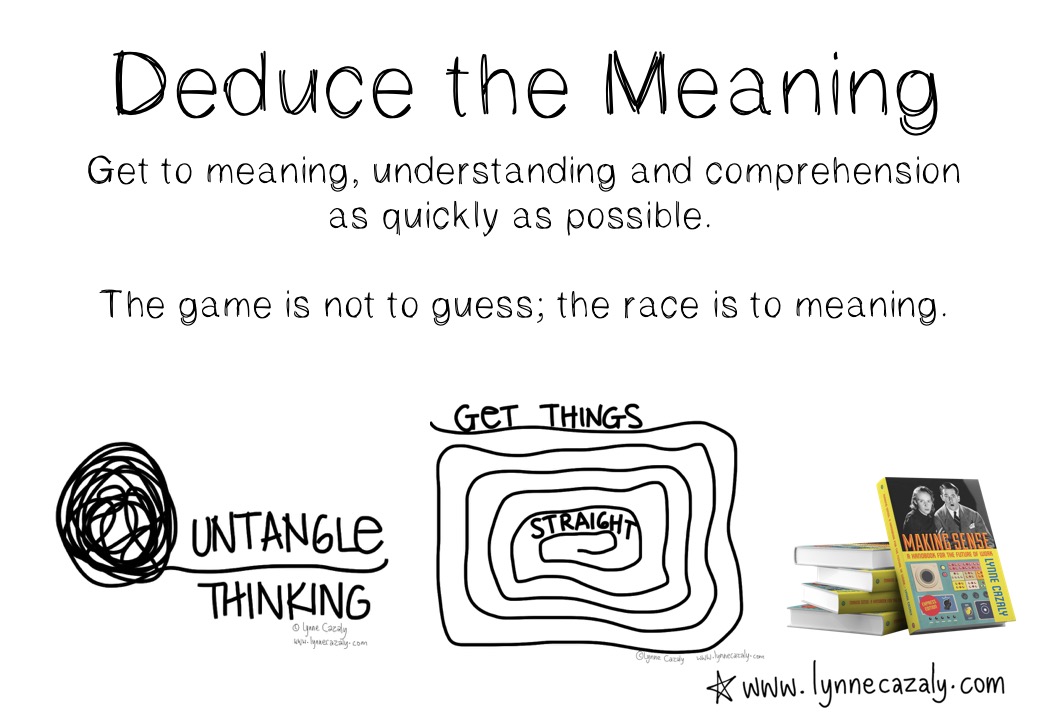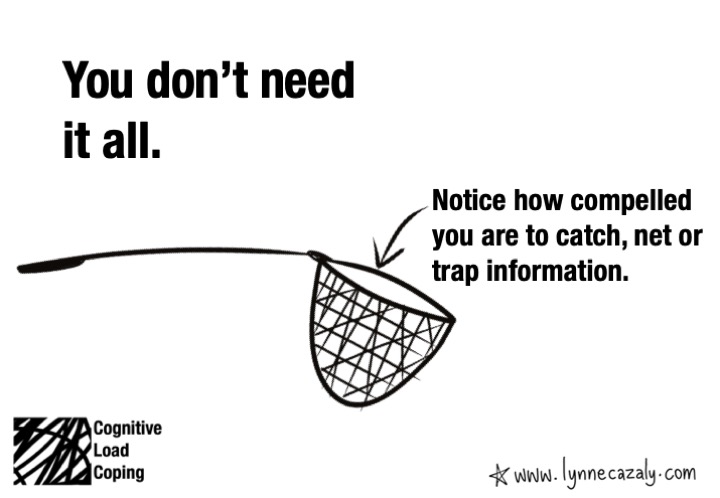Deduce the meaning
 Wednesday, December 4, 2019 at 5:38PM
Wednesday, December 4, 2019 at 5:38PM  When meetings and workshops get messy and don’t seem to make sense:
When meetings and workshops get messy and don’t seem to make sense:
🌕 Clarify the Content
🌕 Traverse the Breadth
🌕 Explore the Depth.
And then… Deduce the meaning.
As you go into depth on a topic, try and get to meaning, understanding and comprehension as quickly as possible. The game is not to guess. The game or race is to meaning. The sooner you can get the meaning of things - as you progress - the better progress, the better sense you'll make.
Help people understand. Get to the meaning of what this is about.
But how would you know if it's making sense to them? You ask. Ask not 'Is this making sense?' or 'Does this make sense?' Both are tragic closed yes/no answers.
Ask 'What sense is this making right now? or 'What sense are you getting from this?' These are open questions, inviting people to make a summary of the meaning they're getting right now.
Q: How do you work out what the meaning of something is?





















